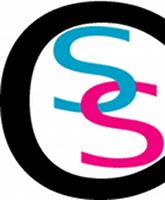University of Colorado, Boulder
Founded at CU Boulder in 2001, the Learning Assistant (LA) model catalyzes change in faculty, departments and institutional practices by providing infrastructure to support and reward faculty for instructional innovation. Learning Assistants are undergraduate students who, through the guidance of weekly preparation sessions and a pedagogy course, encourage active engagement in the classroom through a variety of activities. For example, LAs facilitate group discussions in the classroom, guide students on how to manage the volume of material in a course, provide feedback to students as they prepare complex projects or presentations, offer study tips, and help motivate students to succeed. The program is also of great benefit to LAs as they develop content mastery, teaching, and leadership skills. The LA program is at its core, a faculty development program, however it does not push specific reforms or try to change faculty directly. Instead, the opt-in program offers resources and structures that lead to changes in values and practices among faculty, departments, students, and the institution. The LA model has demonstrated impacts on faculty learning, student learning, and student retention in gateway courses. These outcomes and the critical elements of the program will be discussed.
Valerie K Otero is a Professor of Science Education and co-founder of the Colorado Learning Assistant program, International Learning Assistant Alliance, and CU Boulder's Center for STEM Learning. Professor Otero has advised the National Academy of Sciences and NASA on issues in science education and teacher professional development. Her innovative instructional models have spread throughout the world, reaching hundreds of universities throughout the U.S. and in Singapore, Ireland, Japan, and India. Professor Otero has received awards for her research and teaching and has been recognized nationally by the American Physical Society for her contributions to physics education. Otero is a Chicana, first generation college student, who grew up working after school at her parent's grocery store and at her family's booth at the New Mexico State Fair. As a student from groups traditionally underrepresented in college and in STEM, she has developed programs that promote such students on the basis of their contributions, skills, and pride associated with engaging in scientific practices. Her programs and curricula engage elementary, secondary, and college students in scientific practices, such as collaboratively inducing principles from data. Her Physics and Everyday Thinking-High School Curriculum is used throughout the nation and is gaining traction as a mechanism for assisting teachers to engage students in NGSS practices. Otero also leads a software development group, which develops software associated with managing and assessing innovative educational programs. The software is intended to serve as a social organizing tool, contributing to changes in values and practices in education.
